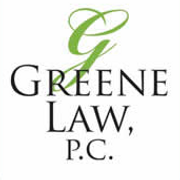
For most people, writing a simple will is the best way to ensure your assets are distributed according to your wishes after you’re gone. However, in some situations, a living trust provides a better approach, allowing your estate to bypass probate and giving you more control over the wealth you’ve built. Below are answers to some common questions about these extremely powerful estate planning vehicles.
Answers to Common Questions About Living Trusts
What is a trust?
Trusts are completely separate legal entities that take legal ownership of your assets, which are then used for your benefit. After you’ve passed on, the trust can be dissolved and its contents distributed to your heirs, or you may name a new beneficiary who will inherit those assets.
Will my beneficiaries get their inheritances faster if I use a trust?
 Because the assets held in trust are technically owned by another entity, the estate doesn’t have to go through probate, which can take at least six months to complete. Trusts offer a more streamlined process that saves time and money, reducing stress and frustration for your loved ones.
Because the assets held in trust are technically owned by another entity, the estate doesn’t have to go through probate, which can take at least six months to complete. Trusts offer a more streamlined process that saves time and money, reducing stress and frustration for your loved ones.
How do trusts let me control my wealth?
When you write a will, each beneficiary receives their entire inheritance when the estate is closed. Trusts, however, give you the option of placing conditions on your heirs’ inheritances, or distributing those assets over time. For instance, you might require that a child complete college before receiving any money, or stipulate that a grandchild receives monthly payments instead of a lump sum.
Are assets held in trust taxable?
Assets held in trust are subject to the estate tax, but certain types of trust do provide significant tax benefits. For instance, setting up a shelter trust may allow you to effectively double the estate tax exemption, leaving more of your wealth for those who matter most.
Estate planning can be a difficult, confusing project, but the guidance of an experienced attorney can help ensure your wishes are respected. For over 25 years, Greene Law, PC in Farmington, CT, has provided detailed advice and a level of personalized service that has earned them the distinction of Hartford’s Finest. Visit their website for more on their estate planning services or call (860) 676-1336 to arrange a consultation with an accomplished attorney.
About the Business
Have a question? Ask the experts!
Send your question

